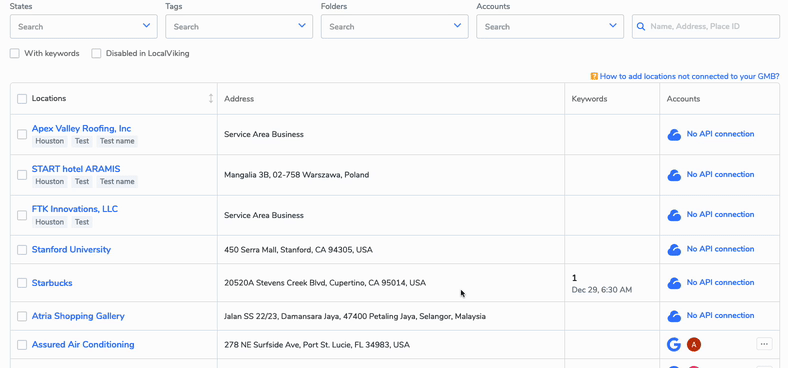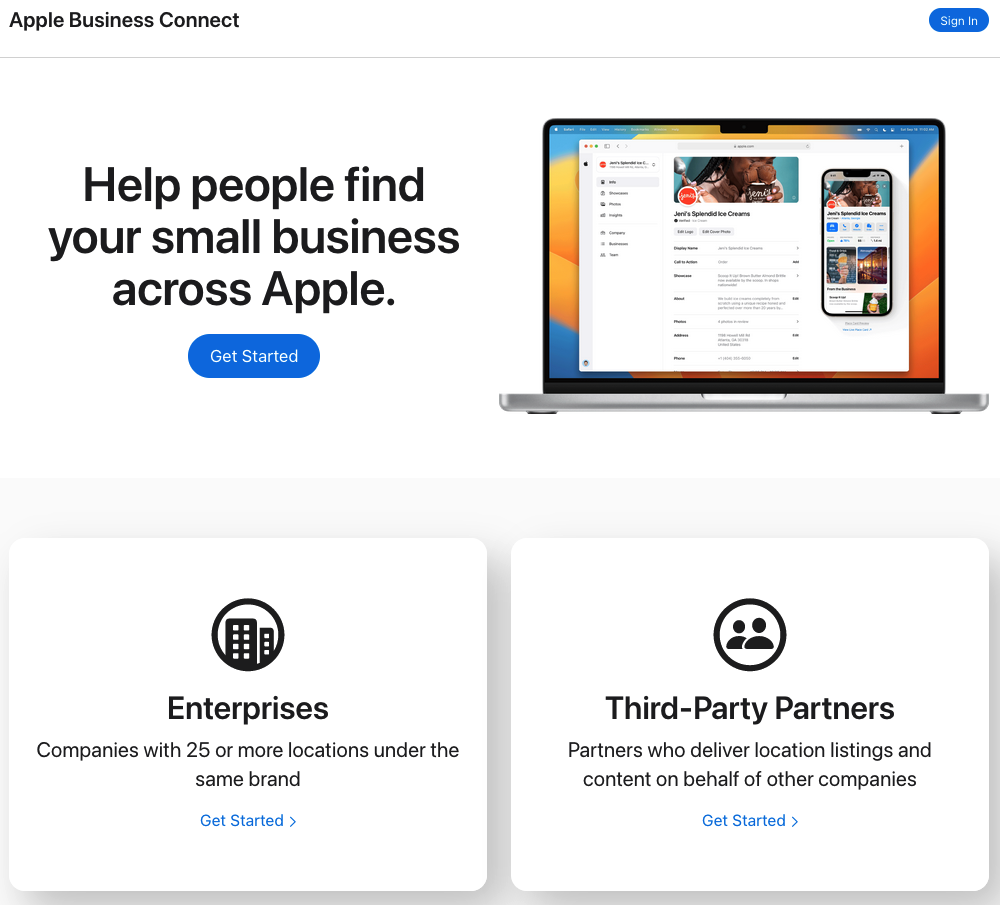Hey there, everyone. The US State Department recently decreed that it will fully adopt Calibri as its standard font by February 6. To give you a quick history lesson, Calibri was the default font in Word 2007. Times New Roman, the font the State Department currently uses, was the default font in Word 2003. At any rate, if you’re still producing documents with Times New Roman, you should probably switch to some kind of sans-serif font. Your documents will look dated if you don’t.

We’re going to start this week’s newsletter with a Local Viking update. Our users have had the ability to organize locations by tag for years. Those tags are now visible on the locations screen. Clicking any tag will show all of the locations that fall under it. You can see what we mean in the recording above this paragraph.

The biggest news in local SEO right now is Apple launching a competitor to Google Business Profile. It’s called Business Connect and it went live last Wednesday. It has its own API and the website has interfaces for small businesses, enterprises, and agencies. You can click the link in the previous sentence to begin registering businesses right away.
The idea behind Business Connect is to give businesses of all sizes the same kind of presence within Apple’s ecosystem that Google gives them on the wider internet. While Apple probably won’t overtake Google Business Profile’s dominance in business listings, Business Connect will be the default way businesses get presented in many iPhone and iPad system apps including Messages, Maps, and the Safari browser.
There are a lot of people walking around with iPhones. It is worth taking the time to register your own businesses and the businesses belonging to your clients in the near future.
The API associated with Business Connect supposedly has some neat features like updating changes in real-time and giving 25+ location enterprises direct access. We have to rely on hearsay when we tell you that though. We are in the process of gaining access, but nothing involving Apple Developer accounts is ever easy.
Business Connect makes all kinds of tracking information available to business owners and marketers. You can see what people searched for before clicking into a business as well as the total number of things a user clicked on between running a search and arriving at a particular business listing. You can see where users ran searches. Finally, tracking URLs that function pretty much the same way UTM tags do are also part of Business Connect.

The other interesting story we caught wind of is the fact that malicious actors are able to place ads that link to websites with malware at the top of Google search results. The way it works is like this. Someone searches for a program they’d like to install like VLC, 7-zip, or OBS. The ads, which look a lot like search results (by design), then take people to a page with a downloadable .exe file (this mostly targets Windows users) that will in fact install the application they were looking for but will include hidden viruses that can take control of your computer any time the attacker chooses to.
The programs we listed weren’t chosen at random. They’re open-source projects that rely on donations. The software companies behind them don’t have huge advertising budgets. That makes buying ads associated with them comparatively inexpensive. You can watch this YouTube video to get a more complete understanding of what’s going on. In any case, always be careful when you’re downloading an application you plan to install on your computer.
We’re going to wrap this week’s newsletter up. Local Viking has lots of new features that are nearly out of the development pipeline. Our auditing functionality will go live in the next few weeks. We’re putting together some white label marketing materials to help our users sell GeoBooster to their clients as well. We’ll let you know more next week. Take care.